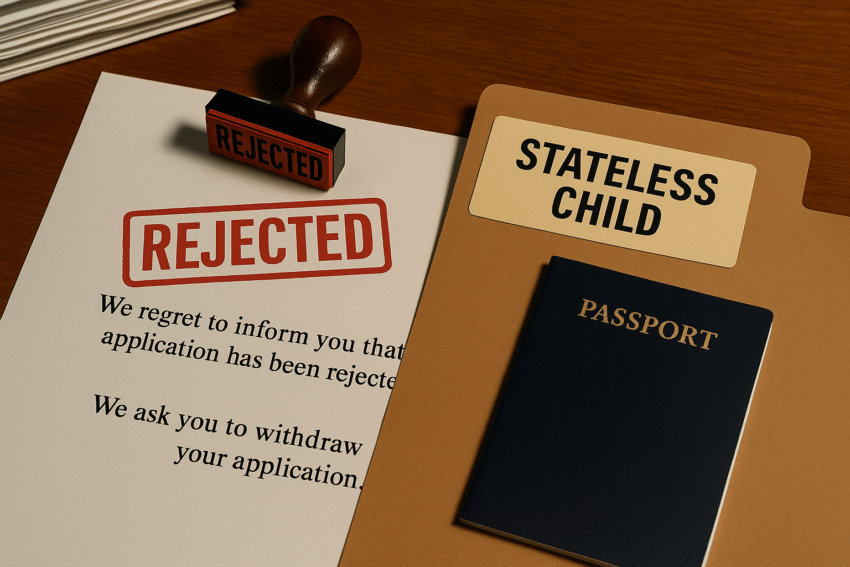Last week I received yet another blow — this time from the Standesamt Frankfurt, where I had submitted a request for my children’s citizenship. What shocked me most was not an official rejection but something even more absurd: the office asked me to Withdrawal my own request, instead of issuing a formal decision that I could appeal. In other words, they wanted me to erase the problem for them.
The Core Problem
My children have been raised entirely in Germany. They attend German schools, speak German, and live under German laws. Yet, because of endless bureaucratic loops and contradictions, they remain stateless. In theory, § 3 StAG protects minors from exactly this fate. In practice, institutions like the Standesamt bend the procedure to avoid responsibility.
A Legal Trap
The absurdity lies in the fact that German law itself created this trap: the 2022 custody decision forces us to remain in Germany. – At the same time, the authorities refuse to recognize my children as German, even though the law allows it. – Instead of a formal rejection — which would give me a right to appeal — I am pushed into withdrawing my own request. – The result: a family stuck in limbo, with rights on paper but no rights in practice.
Avoiding Responsibility
This case is not unique. I have seen many similar ridiculous answers from German authorities. They are not simply administrative errors — they reflect a broader political culture: avoid responsibility at all costs. By refusing to issue clear decisions, institutions prevent families like mine from using the legal remedies that are supposed to exist.
How Other Systems Would Respond
In Common Law countries, a judge would look at the facts: children are here, integrated, and stateless — therefore, the state must act in their best interest. In other Roman law-based systems, judges and registrars are often more pragmatic, applying epieikeia (equity) to close legal gaps. Germany, by contrast, clings to rigid procedures, even when those procedures contradict the spirit of the law — and sometimes even refuses to take responsibility for those rigidities.
Why This Matters
This is not just about my family. It is about a system that uses children as pawns in bureaucratic chess, instead of protecting them. Statelessness is not a private inconvenience — it is a violation of basic human rights under international law.
What Comes Next
I will continue documenting each rejection, each refusal, and each absurd demand. These stories will become part of my next book, but more importantly, they belong here, in public. Because silence only protects those who hide behind bureaucracy.
Germany must answer a simple question: why is it easier to shift responsibility away than to protect a child from being stateless?
This article is part of my ongoing documentation at SingleFather.eu, where I expose the failures of family and citizenship law in Germany and compare them with fairer, more humane systems abroad.

